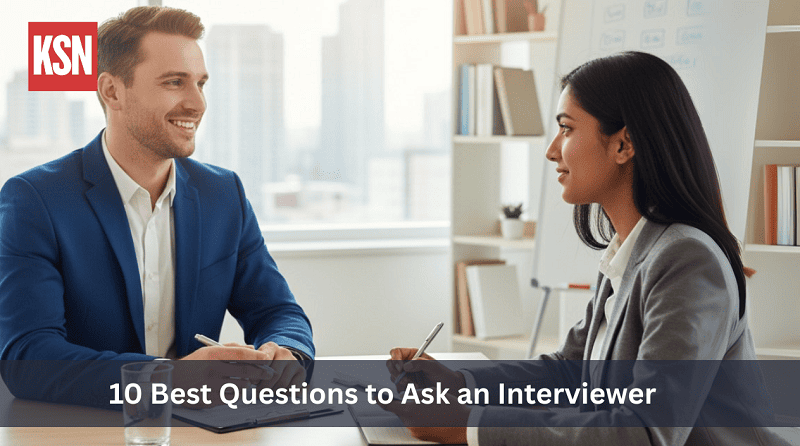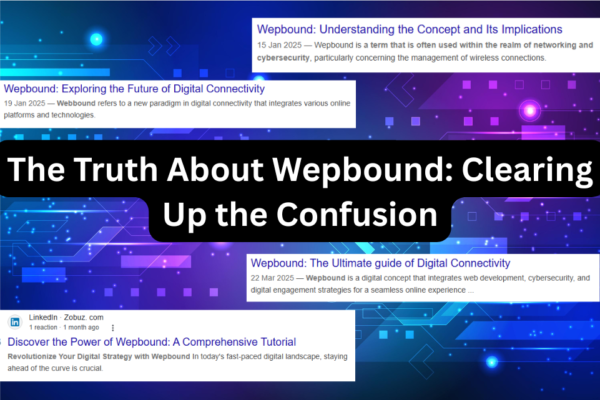Introduction
We’ve all been there – the moment when the interviewer asks, “Do you have any questions for me?” It’s a pivotal moment in the interview process, and how you respond can leave a lasting impression. The right questions can help you stand out as a thoughtful and engaged candidate, showing that you’re not just interested in getting the job, but that you’re looking for the right fit.
In this guide, we’ll explore the best questions to ask an interviewer and provide tips on how to make the most of this critical opportunity.
Why Asking Questions During an Interview is Important?
When you’re in an interview, it’s easy to focus solely on answering the interviewer’s questions and providing the right responses. However, asking questions is just as important. Here’s why:
- Demonstrates Interest: Asking thoughtful questions shows that you are genuinely interested in the role and the company, and not just looking for any job.
- Assessing Fit: The questions you ask help you determine if the job aligns with your career goals, values, and lifestyle preferences.
- Gaining Insight: The answers you receive provide a clearer picture of the company culture, team dynamics, and potential challenges you may face.
- Professionalism: It conveys that you are prepared, professional, and engaged in the hiring process
By taking the opportunity to ask meaningful questions, you show initiative and curiosity—qualities that are highly valued by employers.
What are the top 10 Questions to Ask an Interviewer?
When the moment arrives, having a set of prepared questions can help you feel more confident and leave a lasting impression on the interviewer. Here are 10 of the best questions to ask:
1. “What does success look like in this role?”
- Why this question works: This question shows you’re focused on delivering results. It allows you to understand the expectations for success, and it can help you clarify any potential ambiguities in the job description. By asking this, you’re signaling that you’re committed to making a meaningful impact.
2. “Can you describe the company culture?”
- Why this question works: Understanding a company’s culture is crucial for assessing if you’ll thrive in that environment. This question shows you’re considering how you fit within the broader work culture and values. Plus, it opens the door for the interviewer to describe everything from communication styles to work-life balance.
3. “What are the biggest challenges someone in this role might face?”
- Why this question works: By asking this, you’re demonstrating that you’re prepared for the potential difficulties that may arise in the role. It also gives you insight into what the company views as potential obstacles, whether they’re related to team dynamics, project management, or industry-specific challenges.
4. “How do you evaluate performance in this role?”
- Why this question works: This question provides clarity on how the company measures success and what criteria will be used to assess your performance. Whether it’s through KPIs, quarterly reviews, or peer feedback, you’ll have a better understanding of what’s expected.
5. “What opportunities are there for professional development?”
- Why this question works: Career growth is important for many job seekers, and asking about professional development signals that you are eager to improve and advance. It shows you want to invest in the role and the company, not just remain stagnant.
6. “Can you tell me more about the team I’ll be working with?”
- Why this question works: This question reflects your interest in team dynamics and collaboration. Understanding the people you’ll be working closely with can help you gauge how well you’ll mesh with the team’s communication and work styles.
7. “What is the leadership style of the manager/team leader?”
- Why this question works: This question shows you value effective leadership and want to ensure that your work style aligns with the manager’s approach. Whether they are more hands-off or prefer close collaboration, understanding this aspect will help you know what to expect.
8. “What are the company’s goals for the next 1-3 years?”
- Why this question works: Asking about the company’s future goals shows that you’re thinking long-term. You’ll also get insight into the company’s stability and growth trajectory, which can help you evaluate whether it’s a good place for you to build your career.
9. “How does the company support work-life balance?”
- Why this question works: In today’s world, work-life balance is essential. This question shows that you value a healthy balance between work and personal life. It gives you insight into the company’s policies on flexible working hours, remote work, or vacation time.
10. “What’s the next step in the interview process?”
- Why this question works: By asking this, you’re showing that you’re eager to move forward and want to be prepared for the next steps. It shows you’re invested in the process and helps set expectations for what’s coming.
Bonus Questions to Ask an Interviewer
1. What is the salary range for this role?
- Asking about salary is a direct way to determine if the position aligns with your compensation expectations. It’s best to ask this after you’ve discussed the role in detail to ensure you’re not focusing solely on money, but rather on the job itself.
2. What is the company’s leave policy?
- Inquire about paid time off, sick leave, and holidays. This will give you a clearer understanding of how the company values work-life balance and supports its employees’ well-being.
3. Are there any company policies or expectations that I should be aware of?
- This is a practical question to ask to make sure you fully understand any important rules or guidelines specific to the workplace—like dress code, punctuality, remote work, or even behavior expectations during company events.
How to Tailor Your Questions to the Job and Company?
While the above questions are great for most interviews, tailoring them to the specific job and company will make them more impactful. Here’s how:
- Do Your Research: Before the interview, take time to read about the company on their website, LinkedIn, and any news articles. Look for projects, values, or current challenges that could influence your questions.
- Adjust for the Role: For example, if you’re interviewing for a sales position, you may want to ask more about sales targets and team quotas. If you’re applying for a creative role, questions about innovation and creative freedom might be more appropriate.
- Be Specific: Customize questions to reflect any details you learned from the job posting or the interviewer’s responses.
Common Mistakes to Avoid When Asking Questions
While asking questions is crucial, there are a few common mistakes to avoid:
- Asking Questions That Can Be Easily Answered: Avoid asking questions that are answered in the job listing or on the company’s website. It can make you seem unprepared.
- Focusing Too Much on Salary or Benefits: While compensation is important, asking about salary too early can give the impression that you’re not fully invested in the role itself.
- Asking Too Many Questions: It’s great to be curious, but asking too many questions can feel overwhelming to the interviewer. Stick to 3-5 key questions.
- Asking Questions That Reflect a Lack of Interest: Avoid questions that could suggest you’re not fully engaged with the position or the company.
Conclusion
Asking the right questions during an interview can not only help you understand if the job is a good fit but also leave a lasting impression on the interviewer. It’s your chance to show you’re serious about your career, your growth, and your future with the company. So, the next time you find yourself in an interview, take the opportunity to ask thoughtful, insightful questions that help you stand out from the crowd.
For more tips on job searching, interview preparation, and career growth, check out our other resources on the website. Good luck!
Also do check out what questions are shaerd by the Reddit community
The top questions are those that help you assess the role, company culture, and opportunities for growth, such as, “What does success look like in this role?” and “What are the biggest challenges someone in this role might face?”
Aim to ask around 3-5 questions. You want to show interest without overwhelming the interviewer.
It’s best to wait until later stages of the interview process, unless the interviewer brings it up first.
Ask questions towards the end of the interview, unless the interviewer invites you to ask earlier.
Yes, especially if the role is flexible. It shows you care about work-life balance and workplace policies.
Stay calm, be honest, and give thoughtful, measured responses. It’s okay to take a moment before answering.
If you don’t have any questions, you could ask for more information about the team, company goals, or how the role fits within the company’s future plans.














Recent Comments